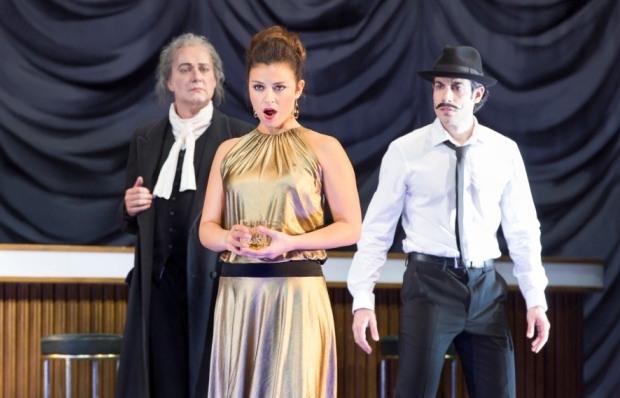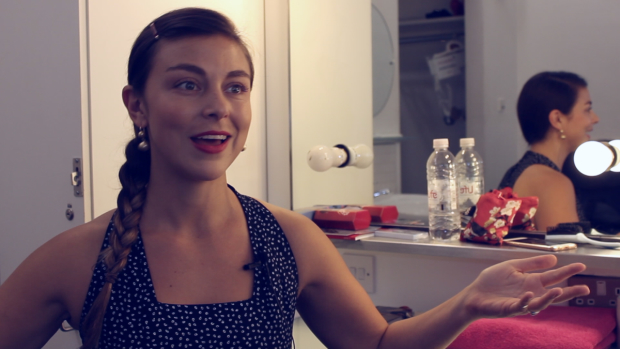Review: Così fan tutte (Royal Opera House)

© Stephen Cummiskey
Whenever Semyon Bychkov conducts Strauss I think I’ve died and gone to heaven. Here though, as he hauls himself through late Mozart, it’s the other place that beckons. This Così fan tutte is beyond effortful: the maestro's laboured tempos in most of the arias are so extreme that he adds 15 minutes to the opera’s standard running time.
Architecturally it’s coherent; aesthetically it’s unbearable. Bychkov could conceivably get away with the slowness if he had a cast of heavyweight voices to match his mood; but for once, ironically, the Royal Opera has engaged a clutch of youthful singers, and they struggle against the treacly tide.
The six principals, four of whom are making their Royal Opera debuts, give warmly musical and dramatically rounded accounts of their roles. As a fresh-faced collective they make shrewd casting for an opera that dallies with the intensity and capriciousness of young love.
Così fan tutte is the one where a dodgy philosopher, Don Alfonso, pushes two young men to test the fidelity of their sweethearts by adopting disguises and attempting to seduce each other’s lover.
Did someone shout misogyny? A good many people have over the years, which is why modern productions of this opera tend to impose heavy-duty concepts on it in order to mask the sexism. Yet for the Royal Opera another house debutant, German director Jan Philipp Gloger, deconstructs Così to an unprecedented extent.
As the overture strikes (or cranks) up, a Regency-clad cast takes its curtain call in dumb-show following a performance of something that might well be Così fan tutte. Two young couples make their way through the stalls, more than fashionably late it seems, and begin to engage with one of the bowing cast members. This turns out to be none other than Don Alfonso in what will go on to become a first-class performance by Johannes Martin Kränzle.
Fast-changing eye candy
With this meta-theatrical flourish we’re off. Thereafter, nothing is quite what it seems: stage and backstage realities blur so that we’re never really sure who knows—or is—what. Do the women recognise their men? The latters' only disguise is a thin moustache, but even when that is removed neither Fiordiligi nor Dorabella bats an eyelid. It’s a novel approach but one that taxes the patience after a while, as do the posturingly nonchalant set-dressers and scene-shifters who interlope throughout the show.
After a vocally tight first duet, both Corinne Winters and Angela Brower give delightful accounts of the young women. Winters in particular sings a Fiordiligi of rare range and beauty, with surprisingly strong mezzo notes as well as a radiant upper range. Brower’s Dorabella could be more flighty in the second act, but that is down to the director's focus. Gloger shows little interest, either, in exploring the character of Despina, Alfonso’s aide-de-camp, although Sabina Puértolas does what she can with her.
Alessio Arduini sings a richly basso-shaded Guglielmo most winningly, but it is Daniel Behle who steals the laurels with an account of Ferrando’s "Un’ aura amorosa" in which time stands still (with a little help from Bychkov). What an exciting tenor he is!
It all looks great, with an extravagance of fast-changing eye candy from designer Ben Baur that’s exquisitely lit by Bernd Purkrabek, but the price to pay for Gloger’s cleverness is an almost total detachment from the characters’ psychological interplay—and that’s a killer blow to this of all operas. Should the conductor share the blame for that? This Così will earn a revival, so we'll see.
Così fan tutte runs in repertory at the Royal Opera House until 19 October.











